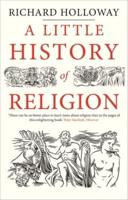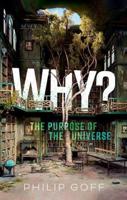Publisher's Synopsis
Festinger et al in When Prophecy Fails, (1955) shows clearly that beliefs arise ex nihilo. As long as there is sufficient expectation, commitment and logic behind the belief it will prosper. In fact, Festinger showed that disappointed prophecies actually make believers more fervent. These conditions were all satisfied in the first Roman-Jewish War, when the political Messiah failed to appear. The sociological and historical evidence both point to the emergence of Christianity at that time, and not before. The firm conviction in the (unwitnessed) coming of the suffering servant (and his salvific acts) at that time explained 1. the destruction of the temple and cessation of the rituals, 2. the delay in the appearance of the political Messiah, and 3. the missionary enthusiasm of apostles to get ready a people fit to welcome the political king. There were more than enough passages which seemed to support this interpretation of events. "As it is written..." became the mantra of the new religion. After that it was only a matter of time before someone (Matthew) created a narrative to explain the origins of the belief that common people could understand and relate to.









